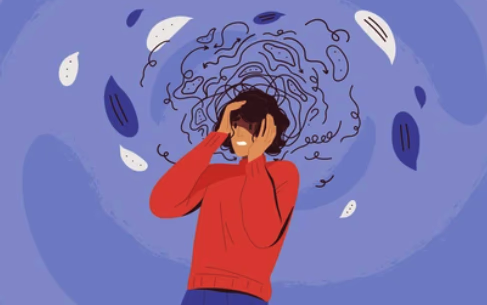
FAQs About Medical Weight Loss
October 3, 2025
Understanding the Genetic Counseling Process
October 4, 2025Mental illness refers to a wide range of conditions that affect mood, thinking, and behavior. These conditions are common and influence an individual’s ability to function in daily life. While experiences vary, certain signs suggest the presence of a mental health challenge. Here’s more information on mental health, focusing on depression and anxiety disorders:
How Does Mental Health Affect Your Life?
Mental health conditions can have a profound impact on various aspects of life. Professionally, they can impact concentration and productivity, making it difficult to complete tasks or meet deadlines. Personal relationships can be strained due to changes in mood, communication challenges, or social withdrawal.
Impacts of Mental Illness
Daily routines and physical habits may also be disrupted due to a mental illness. An individual might experience changes in sleep patterns, leading to either insomnia or excessive sleeping. Appetite can fluctuate, and motivation for self-care activities, like exercise and personal hygiene, may decrease.
Signs of Mental Illness
When your ability to manage everyday responsibilities becomes challenging, it is time to seek professional care. Some general indicators that signal a mental health condition include:
- Significant Changes in Mood
- Excessive Worry, Fear, or Apprehension
- Unwanted or Intrusive Thoughts
- Persistent Fatigue and Low Energy
- Difficulty Concentrating
- Disinterest in Social Activities and Relationships
- Consistent Thoughts of Self-harm or Suicide
What Are the Signs and Symptoms of Depression?
Depression is a mood disorder characterized by a persistent feeling of sadness or a loss of interest in activities once enjoyed. Its signs can be emotional, cognitive, physical, and behavioral. Emotional signs of depression often include a continuous low mood, feelings of hopelessness, and a diminished ability to feel pleasure. People may experience feelings of worthlessness or excessive guilt.
Cognitively, depression can cause difficulty with memory, concentration, and decision-making. Physically, depression can manifest as chronic fatigue, unexplained aches and pains, and significant changes in appetite or weight. Behavioral changes commonly include social isolation, a loss of interest in hobbies, and slowed physical movements or speech. Sleep disturbances are also a frequent symptom.
What Are the Signs and Symptoms of Anxiety?
Anxiety involves intense, excessive, and persistent worry and fear about everyday situations. Symptoms often include feelings of nervousness, restlessness, or tension, as well as a sense of impending danger or panic. Physical signs may include:
- Rapid Heart Rate
- Sweating
- Shaking or Trembling
- Gastrointestinal Issues
Anxiety disorders impact daily life by making decision-making challenging, as individuals may excessively worry about making the wrong choice. Avoiding situations that trigger anxiety commonly limits personal and professional opportunities. Productivity may suffer due to an inability to concentrate, and social interactions can become a source of significant stress.
What Are Some Treatment Options?
Several evidence-informed approaches are available for managing depression and anxiety, especially psychotherapy techniques. Psychotherapy, or talk therapy, can help individuals develop coping strategies. Common types include Cognitive Behavioral Therapy (CBT), which focuses on identifying and changing thinking patterns, and exposure therapy for anxiety.
Medications, like antidepressants and anti-anxiety drugs, may be prescribed by a qualified healthcare provider to help manage symptoms. These treatments may be beneficial by helping to reduce the severity of symptoms and improve overall functioning. Lifestyle supports, including regular physical activity, a balanced diet, and consistent sleep, can also play a role in management. For immediate and severe distress, crisis support services are available.
Schedule an Appointment Today
Mental health impacts all areas of your life, from emotional well-being to physical health. Depression and anxiety have distinct symptoms that signal you may need medical support. Contact a mental health specialist if you are noticing signs of mental illness impacting your daily life.





